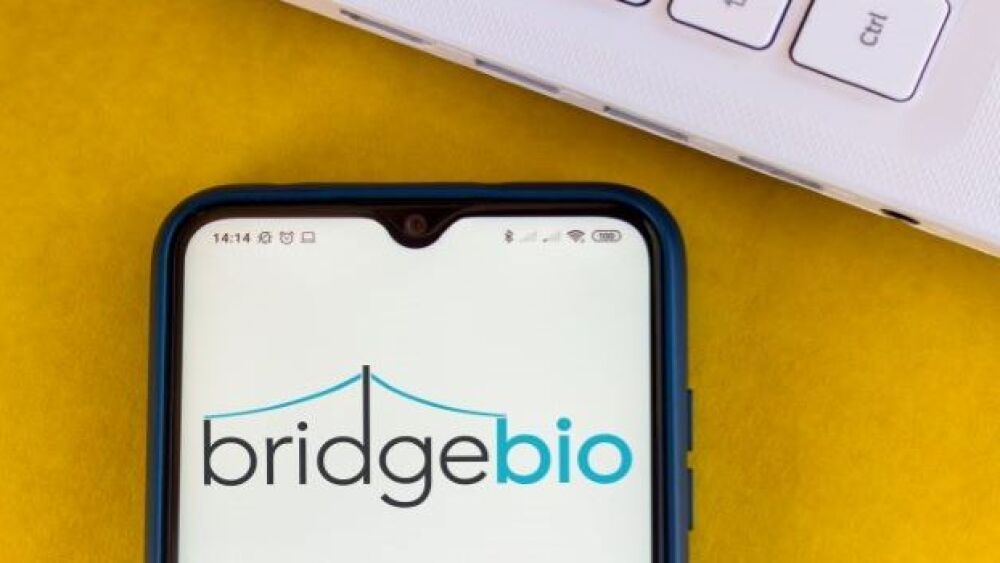BridgeBio Pharma and its affiliate Phoenix Tissue Repair announced positive data from their Phase II clinical trial for the treatment of recessive dystrophic epidermolysis bullosa (RDEB).
BridgeBio Pharma and its affiliate company, Phoenix Tissue Repair, announced positive data from their Phase II clinical trial of PTR-01, which treats recessive dystrophic epidermolysis bullosa (RDEB). The exciting news for the treatment of this rare genetic disorder is the latest in a series of wins for BridgeBio.
Dystrophic epidermolysis bullosa is a genetic disorder caused by mutations in the gene for the collagen type VII (C7) protein. When this gene mutates, it results in severe, painful skin blisters, fragile skin, scarred mucous membranes throughout the body and painful mouth ulcers.
PTR-01 is an intravenously-administered replacement therapy for the recombinant C7 protein. The Phase II clinical trial was designed to test PTR-01’s effects on wound healing, as well as to assess the long-term safety and tolerability of the drug on patients with RDEB.
The Phase II, open-label study showed positive results. Compared to baseline, when patients were treated with PTR-01, 80% of the target wounds experienced a 50% or greater reduction in wound surface area by the end of the 120-day treatment period.
The drug proved helpful for a variety of wound types and sizes. The positive response was noted in 86% of recurrent wounds and 75% of chronic wounds. The 50% or more improvement in wound surface rate also applied to 89% of large wounds and 77% of small wounds compared to baseline.
Even better, PTR-01 showed additional positive effects. All five patients who completed the study reported a decrease in pain during treatment. Patients treated with PTR-01 also reported a 36% mean reduction in total pain compared to baseline over the course of the study.
“Our data shows that treatment with PTR-01 led to rapid, consistent, and durable wound healing,” said Sanuj K. Ravindran, M.D., executive chairman of Phoenix Tissue Repair. “We are hopeful that by addressing the root cause of this rare disease, we will be able to provide a treatment beyond daily wound care and pain management for patients in need.”
BridgeBio is sharing the data at the Society for Investigative Dermatology (SID) Annual Meeting 2022 in Portland, Oregon. The data also prompted Phoenix Tissue Repair to initiate a Phase II extension study.
In December 2021, the company hit a rough patch when a Phase III ATTRibute-CM study of its symptomatic transthyretin amyloid cardiomyopathy drug acoramidis failed its study arm. The company shares dropped more than 70%. Early in 2022, the company experienced layoffs, including the departure of the then-regional medical director, Mary Hames, Ph.D.
The company recently scored an exclusive license with pharma giant Bristol-Myers Squibb (BMS) to develop and commercialize BBP-398, a treatment for solid tumors. The licensing agreement resulted in BMS paying BridgeBio an upfront payment of $90 million, in addition to $815 million in development, sales and regulatory milestones and tiered royalties.
BridgeBio also scored another win with the sale of its rare pediatric disease Priority Review Voucher (PRV). The company had obtained the voucher in February 2021, but in May 2022, it opted to sell the voucher for $110 million to an undisclosed purchaser. The money will help BridgeBio with its debt, extending the interest-only period by two years and principal repayment to Nov. 17, 2026. The money will also support the company’s product development.
“The sale of this voucher will help us advance our pipeline of drug development programs targeting genetic diseases and cancers,” said Brian Stephenson, Ph.D., CFA, BridgeBio’s chief financial officer. “We believe this deal, coupled with our amended loan agreement, offers us the opportunity to read out more data within the duration of our debt and advance meaningful medicines to patients in need in the years to come.”
Featured Jobs on BioSpace





